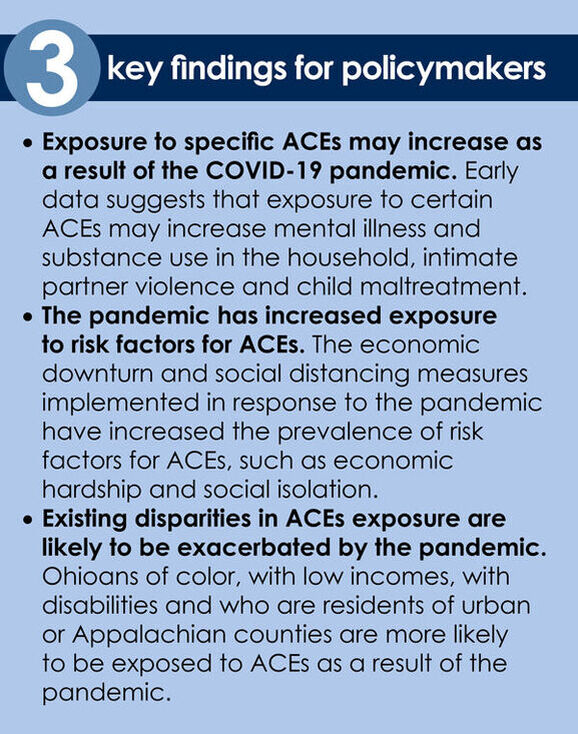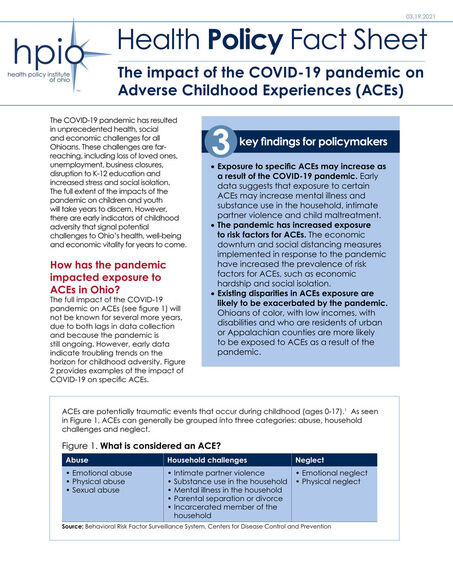The impact of the COVID-19 pandemic on Adverse Childhood Experiences (ACEs)
The COVID-19 pandemic has resulted in unprecedented health, social and economic challenges for all Ohioans. These challenges are far-reaching, including loss of loved ones, unemployment, business closures, disruption to K-12 education and increased stress and social isolation. The full extent of the impacts of the pandemic on children and youth will take years to discern. However, early indicators of childhood adversity signal that the pandemic will have substantial impacts on Ohio’s health, well-being and economic vitality for years to come.
How can Ohio take action going forward?
State and local policymakers have many options to address the impacts of the COVID-19 pandemic on childhood adversity. Recommendations from the following reports provide evidence-informed polices that can be implemented in Ohio to prevent and mitigate the impacts of ACEs and eliminate disparities:
- State Health Improvement Plan
Strategies to improve health outcomes and community conditions, as well as address inequities - Addiction Evidence Project
Strategies addressing prevention, treatment, recovery and other issues faced by families and children, including poor mental health and child abuse - Connections Between Education and Health
Examination of how Ohio schools are providing health services and specific evidence-based policies and programs that have demonstrated both health and education benefits - COVID-19 Ohio Minority Health Strike Force Blueprint
35 recommendations to eliminate racial and ethnic disparities in health outcomes and improve overall well-being for communities of color - Connections Between Racism and Health
Framework for taking action to dismantle racism and other forms of discrimination
Ohio ACEs Impact Project
The Health Policy Institute of Ohio has published two policy briefs, Adverse Childhood Experiences (ACEs): Health Impact of ACEs in Ohio and Adverse Childhood Experiences (ACEs): Economic Impact of ACEs in Ohio, and an accompanying online resource page as part of the Ohio ACEs Impact Project, which builds on and amplifies current efforts to address ACEs in Ohio. Additionally, HPIO is developing a third policy brief focused on evidence-informed and cost-effective strategies to prevent and mitigate the impact of ACEs exposure.
For more information, or to see all phases of the project, click here.

3 key findings for policymakers

